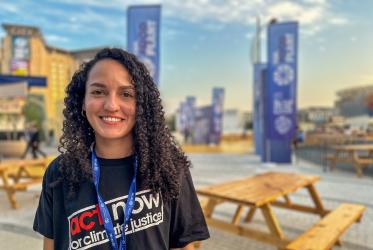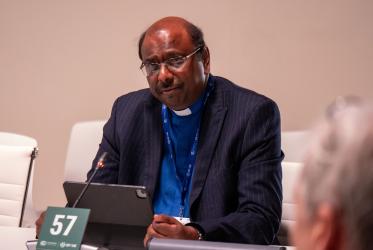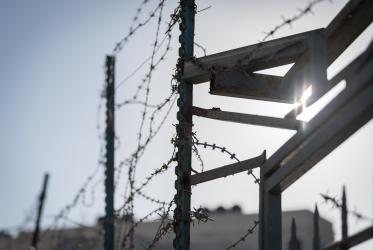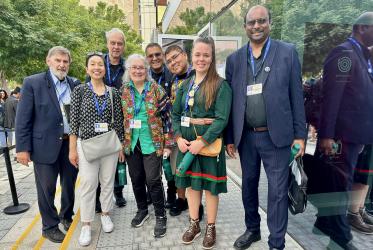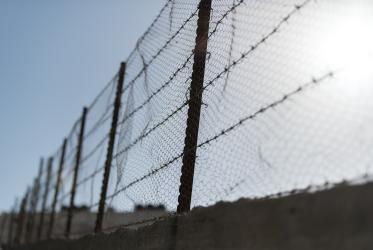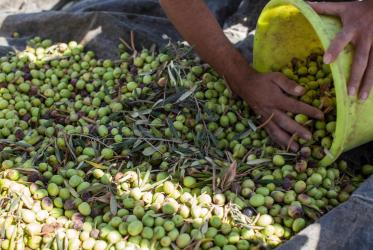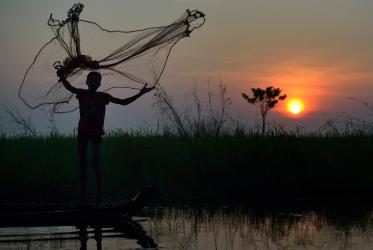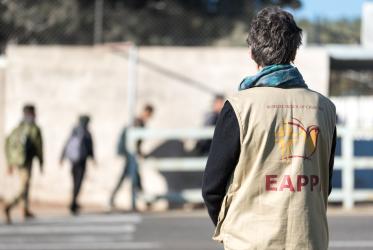Displaying 21 - 40 of 267
At COP28, WCC general secretary hopes for “less talk and more walk”
01 December 2023
Violations of human rights escalate in Masafer Yatta, Jerusalem
30 November 2023
As floods rage in eastern Africa, church acts to save the people
22 November 2023
Violence against Palestinians is rising in the West Bank
16 November 2023
A Guide for Churches on the Prevention of Obstetric Fistula
26 October 2023
Philippines delegation meets with WCC to discuss human rights
19 October 2023
ACT Alliance general secretary: “equity is not negotiable”
26 September 2023
Ecumenical accompaniers report growing violence against Palestinians
21 September 2023
